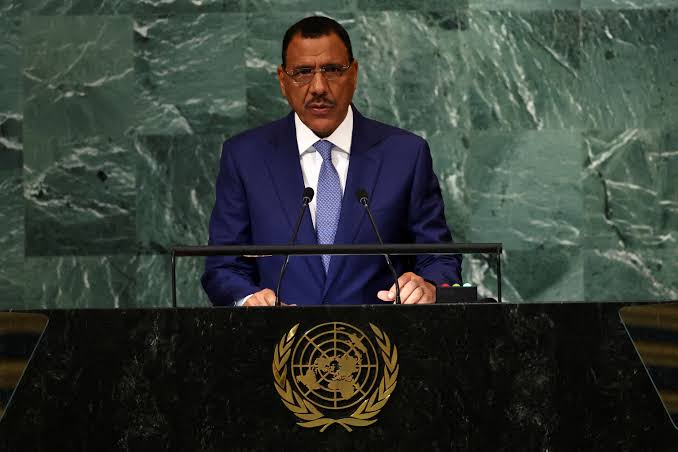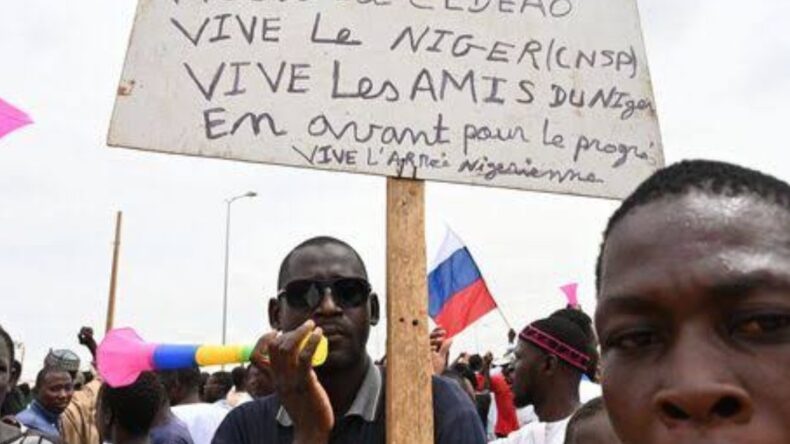
Niger’s military junta has raised the stakes by claiming to have collected substantial evidence to prosecute the country’s deposed President, Mohamed Bazoum, for “high treason.” This move escalates the tension between the junta and neighbouring West African nations, which are determined to reinstate constitutional order in the aftermath of the coup that shook Niger.
Serious Allegations: High Treason Charges
The National Council for the Safeguard of the Homeland (CNSP), the military council that orchestrated the coup in July, released a statement asserting that they have amassed the necessary evidence to charge former President Mohamed Bazoum and his alleged local and foreign collaborators with “high treason” and for jeopardising both the internal and external security of Niger. This development has marked a significant intensification of the power struggle in Niger.
Coup’s Aftermath: Political Chaos and International Condemnation
The political landscape of Niger plunged into chaos following the ousting of President Bazoum by the presidential guard. The coup, which occurred last month, not only triggered international condemnation but also reignited concerns in a region prone to both military coups and militant extremism. Niger, located in the Sahel region, had been a stable democracy in an area marked by political volatility.
End of a Democratic Era: Bazoum’s Election and Its Significance
Bazoum’s election victory in 2021 symbolised a relatively peaceful transfer of power, concluding a series of military coups that plagued Niger since its independence from France in 1960. Amidst the turmoil that followed the coup, the democratic progress achieved was abruptly halted.
West African Response: ECOWAS Sanctions and Ultimatum
In response to the coup, the Economic Community of West African States (ECOWAS) imposed sanctions. It issued a one-week ultimatum to the military junta, demanding a swift return to constitutional governance or risking potential military intervention. However, solidarity among neighbouring West African nations, such as Mali, Burkina Faso, and Guinea, with Niger’s junta complicates the situation, potentially magnifying the regional implications of the crisis.
Accusations and Denials: Communication Challenges
Bazoum has alleged that the junta has isolated and denied him essential medical care and sustenance. Contradicting these claims, the CNSP stated that the deposed president continues to receive regular medical attention from his doctor, with the latest visit occurring as recently as Saturday. The junta denied any issues regarding his health.
Regional Response and Calls for Constitutional Order
As West African leaders intensify their rhetoric against Niger’s coup leaders, a regional standby force has been readied to restore constitutional order in the country. ECOWAS has formed a parliamentary committee to engage with coup leaders, signalling its determination to resolve the crisis. ECOWAS previously set an August 6 deadline for the release and reinstatement of Bazoum or else consider military intervention as a last resort.
Diplomatic Efforts: Meetings and Negotiations
Efforts to mediate the situation include a joint mission by ECOWAS, the United Nations, and the African Union, intended to meet with the military junta. Unfortunately, this mission was disrupted when the Nigerian military authorities conveyed their unavailability to receive the tripartite delegation. In parallel, despite its limited military capabilities, Niger’s new military leader, Gen. Abdourahamane Tchiani, seeks support from other West African nations, including Mali.
Regional Implications: An Uncertain Path Ahead
The situation in Niger continues to evolve, with the junta’s determination to prosecute Bazoum adding a new layer of complexity to the crisis. The outcome remains uncertain as the political landscape shifts and West African nations work to find a solution. The junta’s allegations and the international response will play a critical role in shaping the future of Niger and its path back to constitutional order.













